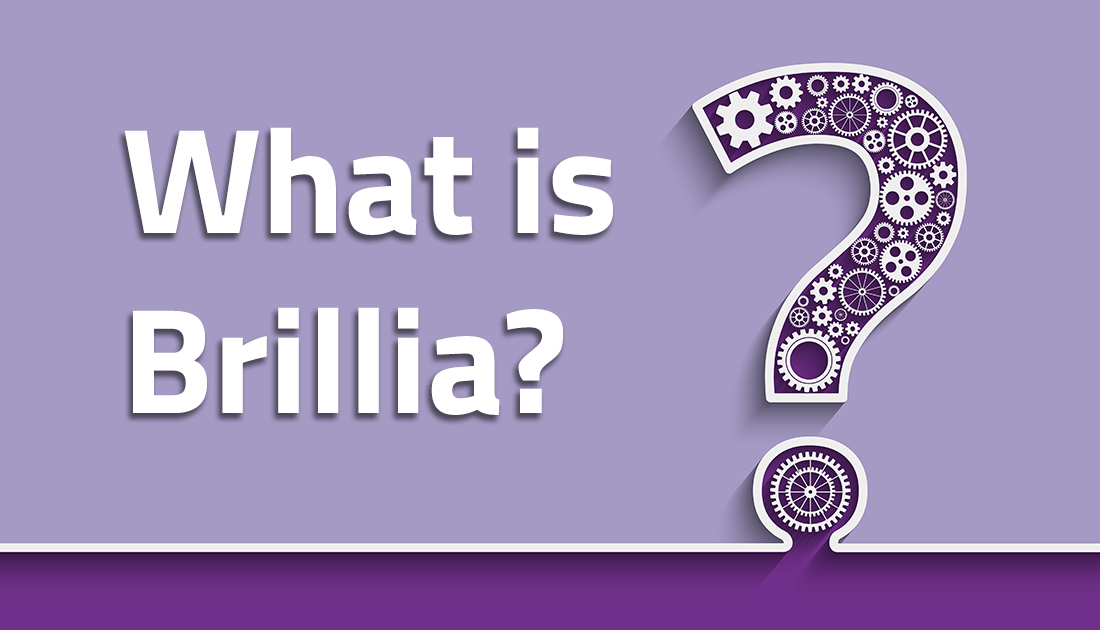
Brillia is a homeopathic supplement with claims to alleviate anxiety and hyperactivity and improve focus and attention. It is marketed as a holistic treatment, and the manufacturer promotes guidelines for proper nutrition, adequate sleep, mindfulness, and controlled screen time along with use of their supplement.
Brillia is made in Lithuania and the active ingredient is Lapine S-100β, an antibody supposed to target the S-100β protein. Hadaf, LLC, the company marketing Brillia, makes the claim that Brillia binds to the S-100β protein, which is released when the brain is under stress. “When this binding takes place, Brillia stops the S-100β proteins it attaches to from manifesting the symptoms. At the right dosage, Brillia stabilizes the S-100β protein activity back to normal levels.”
Homeopathic remedies are listed with the FDA but are not required to show efficacy, so no efficacy studies of Brillia were required to be listed with the FDA.
On its website, Hadaf claims that Brillia has been “verified by science.” They have posted one study conducted by Timothy Allen, Rashash Dhoaklokia, Sylvia Johnson-Park, Giridar MNV and Naveed Basha Court, which was published, but not peer-reviewed. https://www.oatext.com/clinical-and-safety-evaluation-of-brillia-patients-with-attention-deficit-hyperactivity-disorder.php
The idea that S-100β protein may influence ADHD symptoms is intriguing, though we were unable to find 1) studies published in peer reviewed scientific journal articles showing improvement in ADHD symptoms after treatment with Lapine S-100β immune globulin or 2) that the S-100β protein causes ADHD symptoms.
There is some scientific literature that supports the position that S-100β protein levels increase as a result of neurological inflammation, but the evidence is little to nonexistent that high S-100β protein levels cause ADHD symptoms. Correlation is not causation. And that is assuming neurological inflammation causes ADHD. Another correlation is not causation. As stated above, we were unable to find further scientific support that decreasing S-100β protein levels corresponds with decreased ADHD symptoms, whether it be increased attention or decreased hyperactivity.
There are few pediatric mental health conditions that have been studied more than ADHD. The scientific consensus is that the cause of ADHD is multifactorial with both genetics and environment playing a role in the symptoms expressed. A common underlying factor is a dysregulation of neurotransmitters, which is why medication has been shown to be effective as it increases the amount of dopamine in the brain.
We hope that people explore all their options for managing ADHD symptoms, as symptoms vary as much as treatment methods. The health and nutrition of the brain should always be part of an integrative approach to managing ADHD. The nutrients with the most scientific support for helping manage ADHD symptoms are omega-3 fatty acids. There is also significant support that providing neurotransmitter cofactors (vitamins) and certain minerals (magnesium, zinc, and iron) help manage symptoms.
The scientific journal articles that support the inclusion of every ingredient in Accentrate® can be found here:https://accentrate.com/complete-list-of-all-referenced-studies/

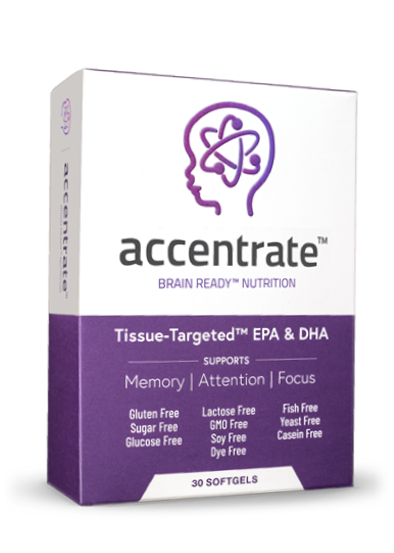
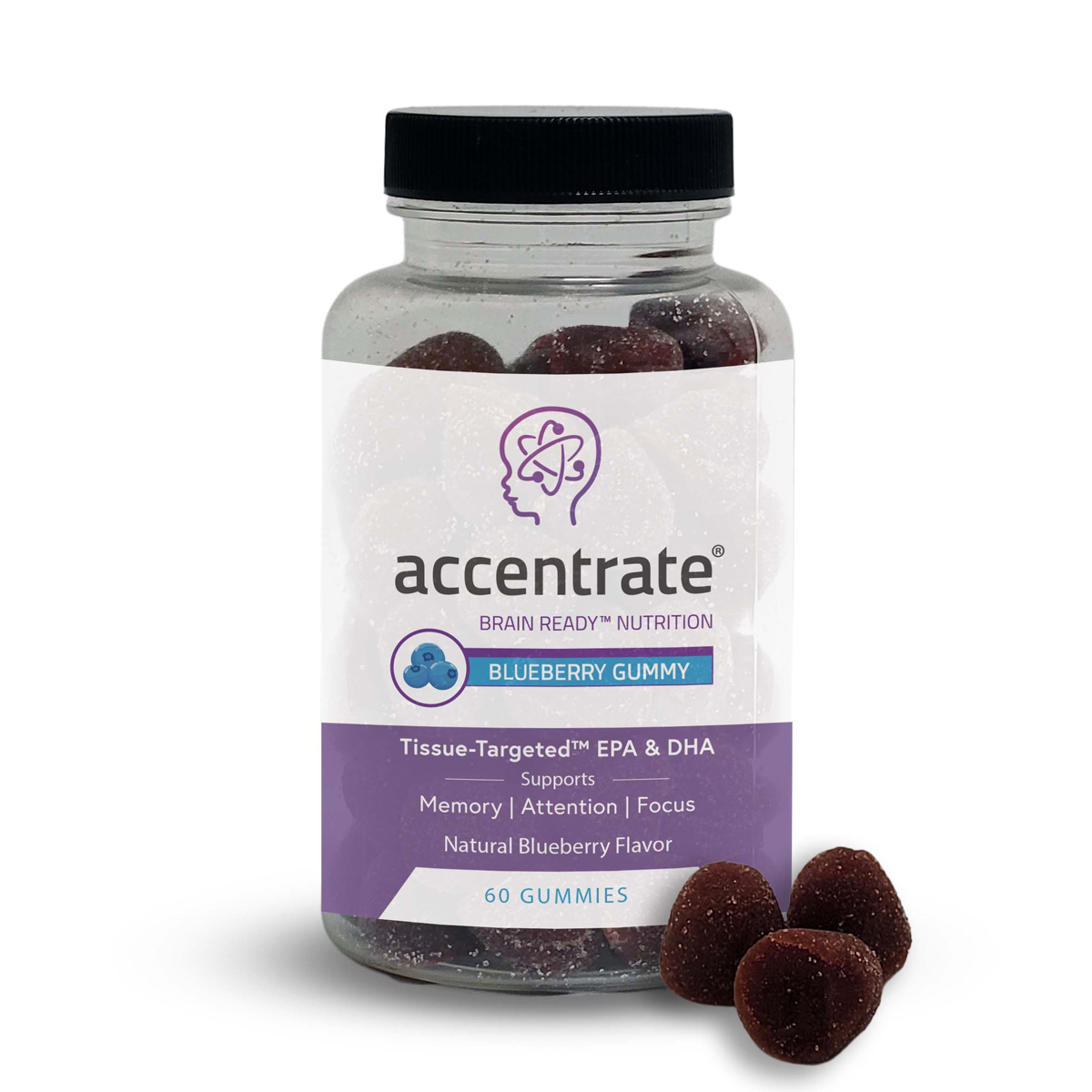
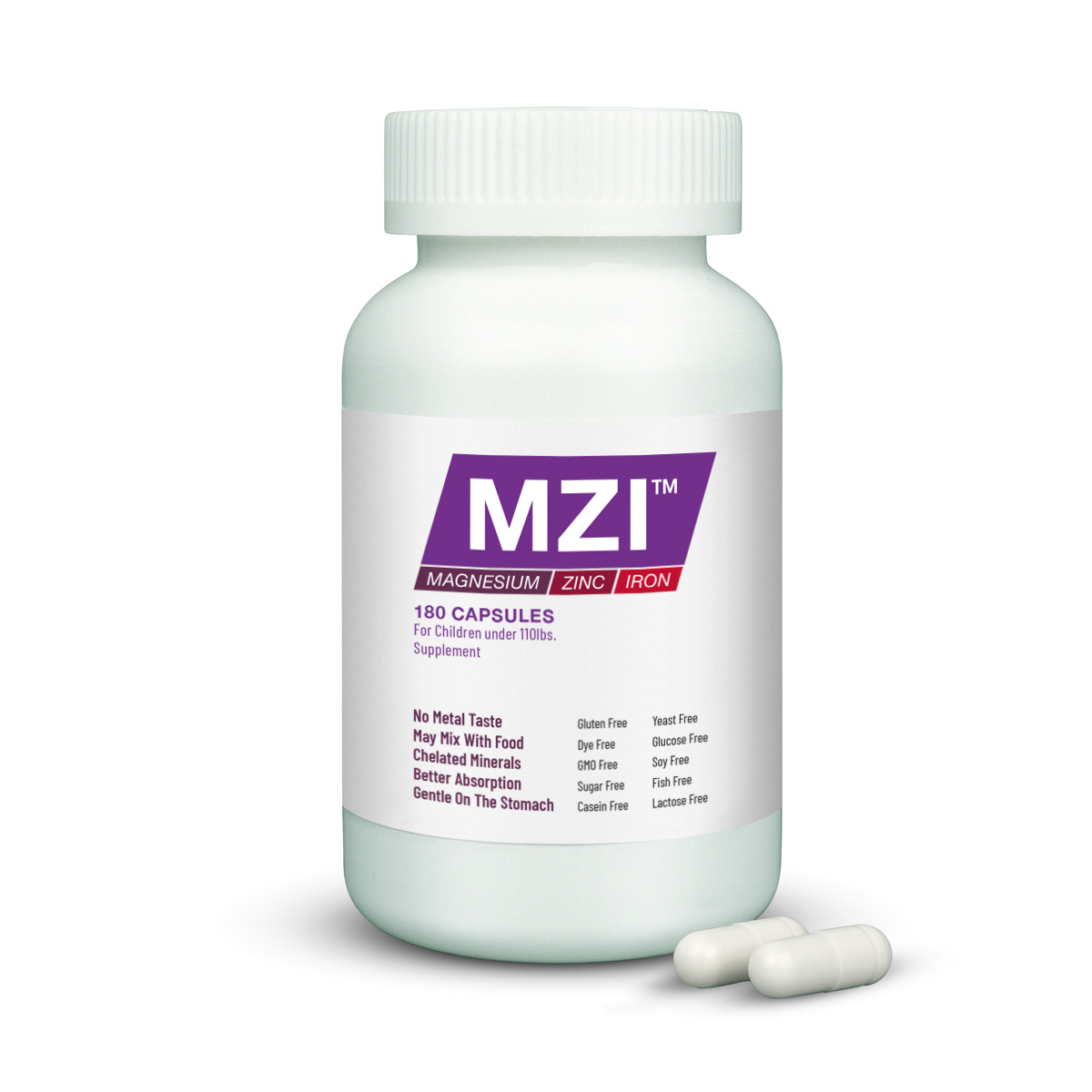
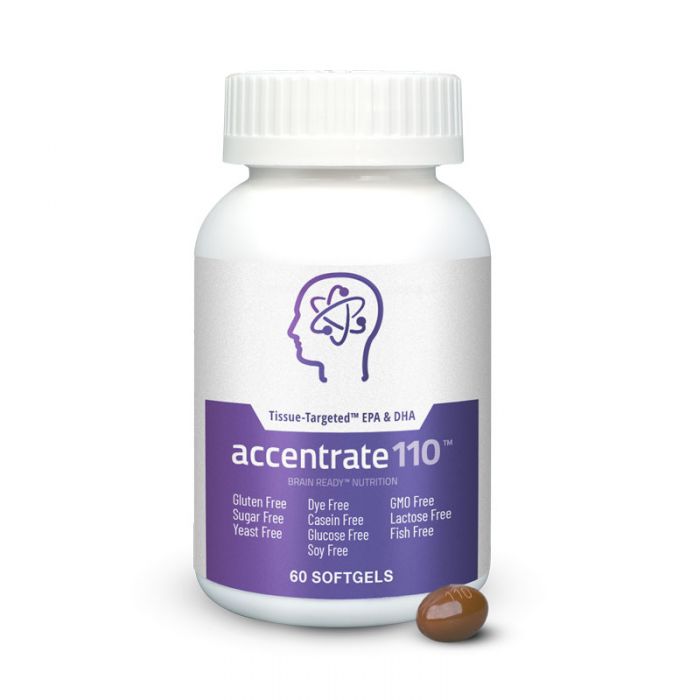
 39 Reviews
39 Reviews
